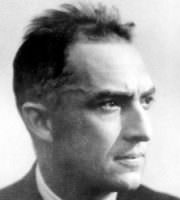by Sandra McPherson
Lions don’t need your help. In the Serengeti,
For instance, one thousand like the very rich
Hold sway over more than Connecticut. The mane
Of the lion, like the hooked jaw of the male salmon,
Acts as a shield for defense and is the gift
Of sexual selection. His eyes are fathomless amber.
The lion is the most social of the big cats.
Pride members are affectionate among themselves.
They rub cheeks when they meet. They rest
And hunt together. And cubs suckle indiscriminately.
But strangers or members of a neighboring pride are not
Usually accepted. If a pride male meets a strange female
He may greet her in a friendly fashion
And even mate with her
But the pride females will drive her off.
Male lions, usually depicted as indolent freeloaders
Who let the lionesses do all the hunting, are not mere
Parasites. They maintain the integrity of the territory.
Lions eat communally but completely lack table manners.
Indeed, lions give the impression that their evolution
Toward a social existence is incomplete—that cooperation
In achieving a task does not yet include
The equal division of the spoils.
More bad news: lions are not good parents.
But prowess, that they have. Their courage comes
From being built, like an automobile,
For power. A visible lion is usually a safe lion,
But one should never feel safe
Because almost always there is something one can’t see.
Given protection and power
A lion does not need to be clever.
Now, lions are not the most likable kind of animal
Unless you are a certain type of person,
That is, not necessarily leonine in the sense of manly
Or ferocious, but one who wouldn’t mind resting twenty
Of twenty-four hours a day and who is not beyond
Stealing someone else’s kill
About half the time.
Lions are not my favorite kind of animal,
Gazelles seem nicer,
A zebra has his own sort of appealing pathos,
Especially when he is sure prey for the lion.
Lions have little to offer the spirit.
If we made of ourselves parks and placed the lion
In the constituent he most resembled
He would be in our blood.





